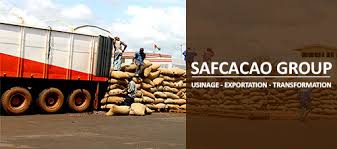The Cargill, Wilmar and Touton groups have put forward offers for the takeover of the assets of SAF Cacao, the Ivorian cocoa giant, in judicial bankruptcy because of an abysmal indebtedness, reports Reuters on September 27th.
“The most serious candidates are Wimar, Touton and Cargill who have made offers that will be analyzed on Monday by the creditor banks and the other lender, the CCC (Conseil Café Caca, ed),” said the agency a source of CCC.
Singapore’s Wilmar and French Touton have made bids for the group’s coffee and cocoa grinding units, including Choco Ivoire. The American Cargill has set his sights on the storage warehouses of the 100,000 square meter group
“Our goal is to sell all the assets and allow the lenders to get their money back and get it done as quickly as possible,” said another CAC source.
SAF Cocoa, which buys between 150,000 and 200,000 tons of cocoa each year (10% of Ivorian production) owes about CFAF 160 billion (244 million euros) to a dozen local banks, about 80 billion FCFA (122 million euros). ‘euros) at the Coffee Cacao Council and 25 billion FCFA (38 million euros) of various taxes to the Ivorian State, said on 17 September last Prime Minister Gon Coulibaly during a press conference. The latter had also wanted a buyer to be found before the start of the campaign, this early October.
The Ivorian president had hit the nail on Tuesday, saying it “is not about doing anything to fix things (…) for a company that has been mismanaged and has speculated” and whose indebtedness put the local banking system at risk.
The sale of the assets is intended to ensure the repayment of the creditors of the group and to save more than 3,000 jobs. The leaders of SAF Cacao had a time hoped for a saving intervention of the authorities to suspend the decision of judicial liquidation without winning the case.
We are at the end of what was considered a sucess story, a modest company founded in the middle of the year 2000 by three Ivoiro-Lebanese, Ali Lakiss and the Amer brothers, who had managed to compete with the multinationals of cocoa installed in the country.



